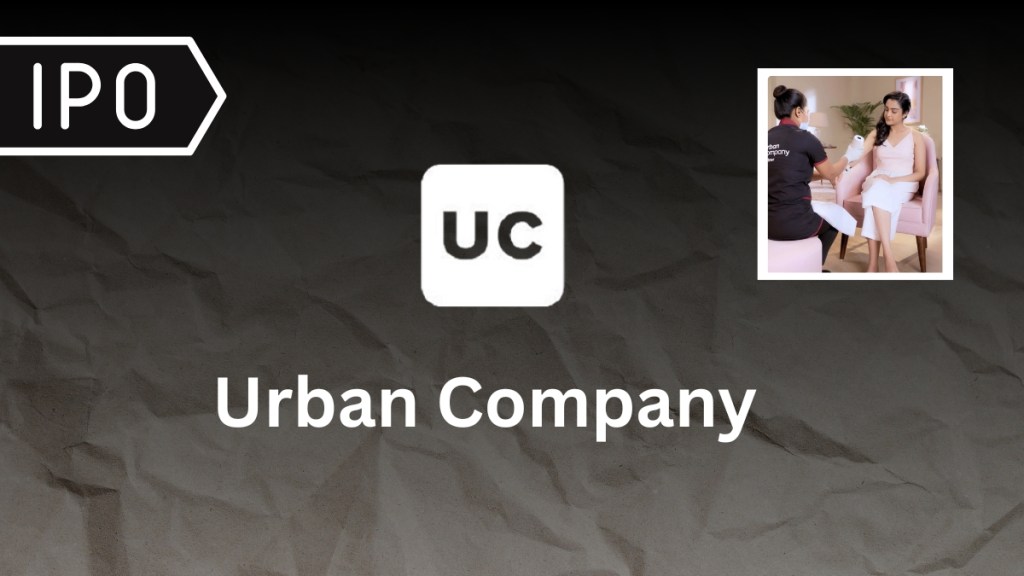With its toolkit ready, Urban Company’s Rs 1,900 IPO is set to knock on Dalal Street’s door tomorrow, September 10, as bidding finally opens. Out of this, Rs 1,428 crore will come from existing investors cashing out through an Offer for Sale (OFS). The rest, Rs 472 crore, will go to the company to fund tech upgrades, office leases, and expansion.
The Urban Company GMP surged 33% in the last 10 days. The issue has been priced at Rs 98-103 per share. That indicates the estimated listing price is seen upward of Rs 130 per share. However, this is just indicative estimates on the basis of grey market premium and not the actual listing price.
5 things you did not know about Urban Company
But before you decide whether this IPO is worth a look, let’s dig into three things about Urban Company that you probably didn’t know.
Why Urban Company change its name?
For those of you who are old patrons of Urban Company, you would know it was not the name the company was referred to as earlier. It was earlier called ‘UrbanClap’. Ever wondered why? Well, the company dropped this name in 2020 and changed to Urban Company. This is because in some countries, “clap” is slang for an STI (sexually transmitted infection), which is not the best association for a brand with global aspirations. The company made its global foray around that time, between 2019-2020.
From dust to doorstep: Why Urban Company clicked with customers
Moving into a new home is always exciting, but the cleaning hassle is often overwhelming. A major chore, once you move in, is cleaning all the dirt, dust and stains and managing the chaos.
That is where Urban Company steps in. With just a booking on the app, a team shows up with a full toolkit – cleaners, electricians, pest control or even a beautician.
This makes the job simple. Urban Company connects customers with trained professionals, takes a cut from each booking, and keeps the cycle running.
Now, how this impacts the company’s growth process. Let’s have a look at it. In FY23, 76% of Urban Company’s users came back for more. By FY25, that jumped to 82%. That repeat rate is one of the real boosts of Urban Company’s business.
Urban Company’s profit puzzle: What triggered the massive turnaround?
Here’s a number that makes investors curious. Urban Company went from a Rs 312 crore loss in FY23 to a Rs 240 crore profit in FY25. How did the manage the massive turnaround?
This includes steady revenue growth (Rs 1,144 crore in FY25), tighter cost control, and a one-time Rs 211 crore tax credit. Strip that credit out, and profits still stand at around Rs 28 crore.
One catch though is that Urban Company’s operating margin is barely 1%. Its international bets and new product lines like “Native” (selling water purifiers and electronic locks) are still burning cash. So, the home services business in India is carrying the weight for now.
Is Urban Company lagging in offering employee benefits?
Urban Company calls its professionals “independent partners”. But unions say the system feels more like an employer-employee setup.
This is because Urban Company controls bookings, ratings and even how many jobs workers can see. But the major risk factor that lies here is that a small dip in rating for these companies could mean fewer jobs and lower income.
Now with terms such as “gig worker” rules slowly evolving in India, the company might in the future face higher costs if the government enforces benefits like Provident Funds or insurance for its workers.
Urban Company IPO: What about competition?
So far, Urban Company hasn’t had any dominant national rival. Smaller apps exist, but none of them match Urban Company’s scale. Though the company highlighted in its DRHP, “We face intense competition across the markets we serve, which may result in reduced demand,” this relates more to competition for independent service providers like an electrician or a plumber and is also indicative of future risks.
However, there is no other national player with home solutions provided under the same umbrella, as offered by Urban Company.
The big question then – is the IPO worth it? That remains unanswered, as every issue carries its own benefits and risks, and investors must act wisely. The real test begins once the stock lists.

